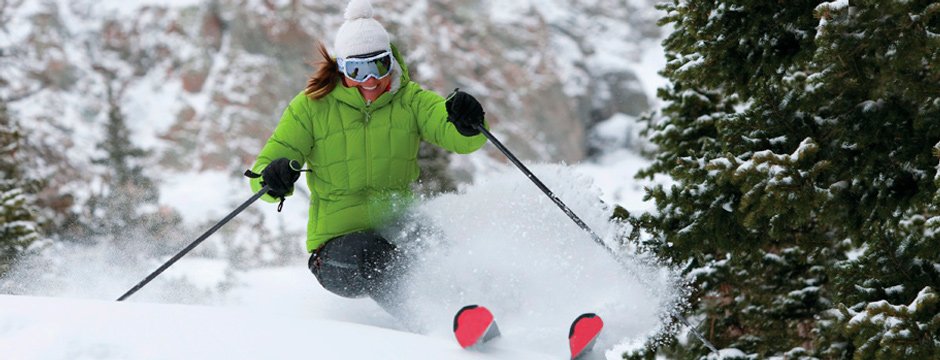Research suggests skiing keeps you young!

Anyone lucky enough to have soared down the slopes on a ski holiday in France, Europe, Canada or anywhere in the world will know that skiing keeps you young at heart. The adrenaline rush of snow sports reminds us of the excitement in life, of enthusiasm and freedom. But recent research is proving that the old claim that skiing keeps you young is more than just a state of mind.
Researchers began to put evidence to these claims back in 2011, with a report named the Salzburg Skiing for the Elderly Study. Published by Australian experts, the study attempted to monitor the long-term health effects of alpine skiing on older individuals, reports the San Diego Union Tribune.
Unsurprisingly for the skiers among us, the findings of this study proved skiing to have significant health benefits promoting a youthful body. Alpine skiing two to three times per week for just 12 weeks led to a marked increase in aerobic fitness, leg muscle power and strength in older men and women of average fitness.
The report claimed that “the mean oxygen uptake (VO2 max) improved by 7.2 percent, power measures improved by 17 percent, and maximal dynamic quadriceps strength increased by 16 percent. Additionally, the quadriceps muscle size increased by 7.1 percent with an equal increase in slow twitch and fast twitch muscle fibres. Other benefits included increased glucose metabolism, decreased postural sway and improved psychological measures.”
These are all physical attributes that decline with age, as muscle strength and co-ordination reduces and cardiorespiratory capacity, and postural stability deteriorates. A lack of activity and social interaction in older individuals may also lead to psychological disorders. Both these psychical and mental risks, however, are proved to be reduced by exercise, whether in promoting body functionality or increasing independence and quality of life.
But recently, these findings have been fortified by a new project. The Telegraph claims “a new blood test developed by an international team of scientists is said to be the most accurate method yet of determining the age of the body’s cells.”
This test is called GlycanAge, and it works by analysing the levels of sugar molecules called glycans in the blood sample. These glycans attach to proteins in the immune system and form distinctive patterns that change as we age, giving the best indication yet as to a person’s biological age. Studying the glycans in a person’s bloodstream alongside lifestyle factors such as smoking, weight, exercise levels, diet, cholesterol, blood sugar levels and stress can show correlations between certain lifestyle choices and biological age.
The Daily Mail recently used this test to carry out their own experiment where they asked six random volunteers aged 55 to take the age test. Not surprisingly, if you’ve tried the skiing lifestyle, the biologically youngest of the group was Karen La Borde, a ski instructor whose biological age was just 34 - 21 years younger than her chronological age!
So, to stay young and physically fit, skip the fancy creams and head to the peaks instead!
